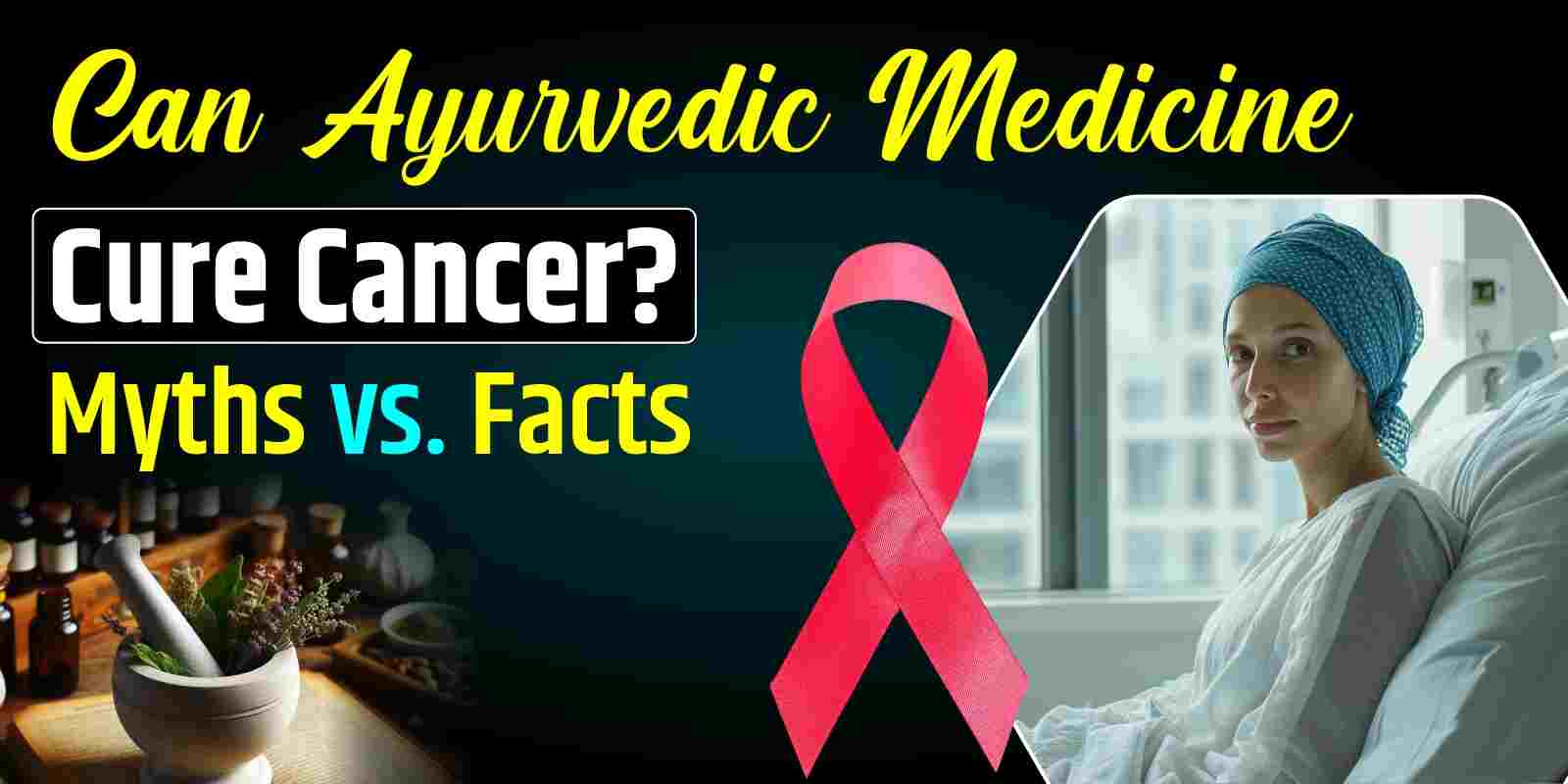
Let’s talk about something important, and honestly, a bit sensitive: cancer. It’s a word that carries a lot of weight, and understandably so. The moment someone gets diagnosed, the world seems to shift. People start looking for answers, for hope, and often, for alternatives. One of the most frequently asked questions that pops up is: Can Ayurvedic treatment for cancer really help with this disease or not?
If you’ve ever Googled this, you know the internet is full of mixed messages. Some say “Absolutely yes!” while others dismiss Ayurveda entirely. So, what’s the truth? Can this ancient Indian healing system cure something as complex as cancer? Let’s dive in, myth-busting style.
Fact: Ayurveda does not claim to “cure” cancer in the way modern medicine uses the term.
Here’s the deal—Ayurveda, which has been around for over 5,000 years, looks at illness very differently than Western medicine. It doesn’t treat diseases based on names like “Stage 2 breast cancer” or “lung carcinoma.” Instead, it focuses on the imbalance of doshas (Vata, Pitta, and Kapha) and tries to restore harmony in the body.
That said, there’s no scientific proof (yet) that Ayurveda can completely cure cancer on its own. But, and this is important, it can be supportive. Ayurvedic therapies, herbs, and dietary practices have been found to help manage symptoms, reduce side effects of chemotherapy or radiation, and improve quality of life.
Fact: No. Please don’t.
This is a dangerous myth that needs to go away. Just because something is natural or ancient doesn’t mean it’s a replacement for life-saving medical treatment. Ayurveda is not meant to be a substitute for surgery, chemotherapy, or radiation, but it can be a wonderful companion therapy.
Think of it this way: if modern medicine is the fire extinguisher putting out the fire, Ayurveda is the supportive hand ensuring the damage that is done is rebuilt and strengthened. Part of the foundation of Ayurveda involves detoxifying the body, increasing immunity, and restocking energy; three things a lot of cancer patients need and will benefit from.
Many progressive oncologists are embracing integrative approaches to disease treatments in which Ayurveda and allopathy (modern medicine) coexist harmoniously. The main factor? Clear communication with your team of healthcare professionals.
Fact: Natural doesn’t always mean harmless.
Let’s clear this up once and for all: just because something comes from a plant doesn’t mean it’s 100% safe for everyone. Some herbs can interact with medications, affect blood clotting, or even be toxic in high doses. This is especially important for cancer patients who are already dealing with complex medications and a vulnerable immune system.
For example, herbs like Ashwagandha, Turmeric, and Guduchi (Giloy) have shown promising anti-inflammatory and adaptogenic effects, which may be helpful during or after cancer treatment. But they’re not one-size-fits-all.
Always and we mean always, consult a qualified Ayurvedic practitioner who understands your full medical picture before taking any herbs or formulations.
Fact: Ayurveda is all about prevention; maybe even more than treatment.
One of the most beautiful aspects of Ayurveda is how much it emphasizes prevention. It teaches you to live in tune with your body and nature through daily routines (Dinacharya), seasonal practices (Ritucharya), mindful eating, proper sleep, and emotional balance.
And when it comes to cancer, this is actually a big deal. Many cancers are linked to chronic inflammation, poor diet, high stress, and toxin exposure; all of which Ayurveda addresses.
Turmeric (Haridra), Amla, and Guggul are just a few of the many Ayurvedic herbs that have been studied for their antioxidant and anti-inflammatory properties, which may help reduce the risk of cancer over time.
In short, while Ayurveda may not “cure” cancer, it certainly offers tools to help reduce the risk of developing it in the first place.
Now, you might be wondering: Has any of this been studied scientifically?
The answer is yes, though we’re still in early stages. Some Ayurvedic herbs like Turmeric (curcumin), Ashwagandha, and Neem have shown anti-cancer properties in lab studies and early clinical trials. For example:
But, and it’s a big but, most of these studies are still in the early phases. More large-scale clinical trials are needed before anyone can make bold claims.
Can cancer treatment in Ayurveda really help the patients?
In the strictest sense of the word “cure”? No, not yet; not by itself. But can it play a meaningful role in a cancer patient’s journey? Absolutely.
Ayurveda offers:
What’s important is that we move away from the black-and-white thinking of “either/or” and start embracing the “both/and” approach. Ayurveda and modern medicine can work together and not against each other.
If you or a loved one is considering Ayurvedic support during cancer treatment, here are a few tips:
There’s a reason Ayurveda has stood the test of time; it understands that true healing isn’t just about eliminating disease, but about restoring balance, peace, and vitality to the whole being.
So while it may not “cure” cancer in the conventional sense, Ayurveda can help people live better, feel better, and maybe even hope a little harder.
And honestly? That’s powerful in its own right.
Ans.
No, Ayurveda supports healing, but is not a proven complete cure for cancer.
Ans.
Yes, but only under expert supervision to avoid interactions.
Ans.
Ashwagandha, turmeric, giloy, and tulsi are commonly used.
Ans.
It helps boost immunity, reduce side effects, and improve well-being.
Ans.
No, but some Ayurvedic formulations are approved as supportive care.
Ans.
It helps detoxify the body and manage stress and fatigue.
Ans.
It may lower risk through a balanced diet, herbs, and stress management.

Certificate no- AH-2023-0186
JAN 05,2023-JAN 04,2026
"Ayurveda is not just a system of medicine; it's a way of life. Connect with us to embrace a lifestyle that nurtures your body, mind, and soul."
Book Consultation Now